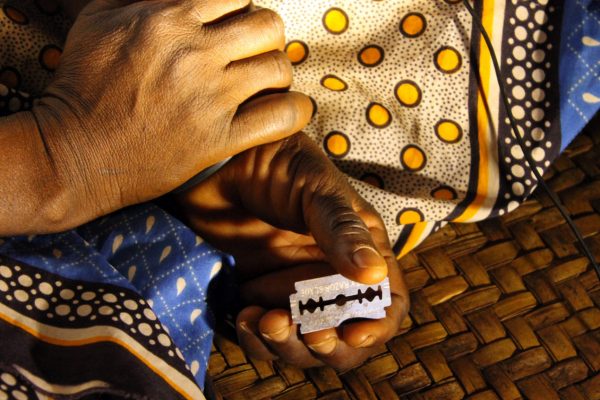International Day of Zero Tolerance for Female Genital Mutilation: “Stop Cutting Us”

The International Day of Zero Tolerance for
FGM is observed annually on February 6th, serving as a reminder of the global
commitment to eradicate FGM.
Female Genital Mutilation (FGM) is a
traditional harmful practice that involves the partial or total removal of
external female genitalia or other injury to female genital organs for
non-medical reasons.
Bukola (pseudonym), a smart, cheerful, and
ambitious young girl from a rural town in Osun State, says she still suffers
pain from the clitoridectomy- partial or total removal of the clitoral glans
and/or the clitoral hood- performed on her when she was six.
This ‘ritual’ was carried out by a
traditional circumciser who used a razor blade to cut her genitals. It was meant to make Bukola ‘remain focused in
life’. However, this inhumane act has left her with pains she lives to remember,
11 years after the procedure.
Bukola recalls, a knot forming in her
throat: “I cried because of the great pain I felt. My clothes were soaked with
blood. Nothing was used to clean me up. It was my mum who used her cloth to
clean the blood before we went home.”
It is imperative to note here that FGM has
no health benefits and can lead to immediate health risks, as well as long-term
complications to women’s physical, mental and sexual health and well-being.
Immediate complications of FGM include
severe pain, excessive bleeding, infections, and even death. Long-term
consequences can include chronic pain, menstrual problems, complications during
childbirth, psychological trauma, and sexual dysfunction. Indeed, the physical
and emotional scars of FGM can last a lifetime, impacting the overall health and
quality of life of survivors like Bukola.
Female Genital Mutilation (FGM) is a deep-rooted
religious and cultural practice that has persisted for centuries, affecting
millions of girls and women worldwide. In Nigeria, some communities still
practice this, under the misguided belief that it will curb promiscuity,
preserve chastity, and generally modify socio-sexual attitudes. Some others
believe that it increases a female child’s opportunity to find a suitor and
have a vaginal birth. These are unfounded claims that are very far from the
truth. FGM is a violation of the rights of girls and women. It is an extreme
form of gender discrimination that should be exterminated.
Eradicating FGM
Health education and sensitization play a
crucial role in getting individuals and communities to shun the practice of
female circumcision. By raising awareness about the harmful effects of FGM, communities
can be empowered to abandon this harmful tradition. This health education
should target not only girls and women but also men, as they often play a
significant role in the decision-making process regarding FGM.
Similarly, engaging community leaders,
religious leaders, and local health workers as advocates for change, especially
in rural communities where the practice is prevalent can help shift social
norms and attitudes away from FGM.
Empowering girls and women with education
and economic opportunities is also essential in the fight against FGM. An
educated and economically independent girl-child will most likely challenge
harmful practices and make informed decisions about her body. There is, hence, a
need to free girls and women from the cycle of poverty by providing access to
education, vocational training, and income-generating activities.
On the legal side, governments should prioritise
the implementation of comprehensive legislation that criminalises all forms of
FGM and ensures the prosecution of perpetrators. Additionally, policies should
focus on providing support services for survivors, including medical care, counselling,
and rehabilitation.
In conclusion, by engaging all these
components to eradicate FGM, especially in rural communities in Nigeria where the
practice remains prevalent, we can create a future where every girl and woman
can live free from the physical and emotional trauma of FGM.
Other articles
Copyright © 2024 Gynix Afrika. All rights reserved.

